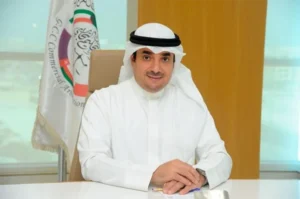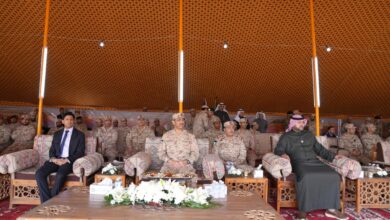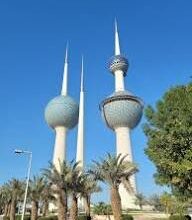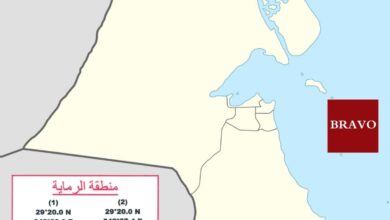Gulf Cooperation Council: A Journey of Achievements
The 44th Anniversary of the Founding of the Gulf Cooperation Council

By Tareq Yousef AlShumaimry
Former Secretary-General of the Commercial Arbitration Centre of the Gulf Cooperation Council
The Gulf Cooperation Council (GCC), also known as the Cooperation Council for the Arab States of the Gulf, was founded by the late Amir of Kuwait, Sheikh Jaber Al-Ahmad Al-Jaber Al-Sabah, and the late President of the United Arab Emirates, Sheikh Zayed bin Sultan Al Nahyan, both of whom played a pivotal role in fostering closer cooperation among the Gulf states.
The shared vision of regional unity, security, and economic integration among the leaders of Bahrain, Kuwait, Oman, Qatar, Saudi Arabia, and the United Arab Emirates led to the formal establishment of the Gulf Cooperation Council through a charter signed by the six countries in Abu Dhabi, United Arab Emirates, on 25 May 1981, known as the Charter of the Gulf Cooperation Council.
Unity among its members was based on their shared goals and similar political and cultural identities, deeply rooted in Arab and Islamic cultures.
Arguably, one of the most important provisions of the GCC Charter is Article 4, which states that the alliance was formed to strengthen relations among member states and promote cooperation among their citizens. The GCC also has a Defense Planning Council that coordinates military cooperation among member states.
The highest decision-making body in the GCC is the Supreme Council, which comprises the leaders, kings, and presidents of the GCC states. They meet at their annual summit and make decisions unanimously.
The GCC Ministerial Council, composed of foreign ministers or other government officials, meets every three months to implement the Supreme Council’s decisions and propose new policies. The administrative arm of the alliance is the GCC General Secretariat Office, which monitors policy implementation and arranges meetings.

Cooperation and coordination over the years have led to significant benefits for member states across various sectors. The education sector, in particular, has received significant attention over the past 43 years, resulting in numerous achievements, including equality in general and technical education and the promotion of Gulf citizenship values in higher education and scientific research. The GCC states established the Gulf Network for Quality Assurance in Higher Education and adopted a Code of Practice and Equal Treatment for GCC Residents in Government Universities and Higher Education Institutions.
In the health sector, the GCC states have demonstrated their significant cooperation by exchanging medical expertise and technologies among member states and coordinating to combat epidemics and preserve the health of communities in the region. The COVID-19 pandemic highlighted the important role of cooperation and coordination among member states in controlling cross-border transmission through the exchange of vital information and epidemiological updates, as well as measures such as quarantines and travel and trade restrictions between countries.
Among the most important achievements in the fields of culture, tourism, antiquities, and museums are the establishment of the Center for Translation and Arabization, the focus on the Arabic language, the approval of the center’s organizational structure, the adoption of the new cultural strategy for the Gulf Cooperation Council (GCC) countries (2020-2030), the adoption of the Antiquities Guidance Law for the preservation and care of antiquities, the establishment of a unified permanent exhibition of real estate at the headquarters of the General Secretariat in Riyadh, and the program for cooperation in the field of antiquities with countries around the world.
In the field of youth and sports, the GCC countries have achieved numerous accomplishments, including the GCC Cup, the strategy for developing joint sports work, the adoption of regulations for the technical committees of the Committee of Ministers of Youth and Sports, the establishment of an electronic database for youth work, and the strategic plan for the Committee of Ministers of Youth and Sports.
Innovation and invention have also received attention from the GCC. The Patent Office was established at the General Secretariat of the Gulf Cooperation Council in October 1998. This office specializes in patents within the GCC, offering an award to support innovation and creativity as a contribution to motivating inventors and talented individuals.
Throughout their journey, the GCC countries have been keen to raise the level and competence of Gulf women, support them, and actively participate in all fields at the local, regional, and international levels. Statistical indicators have shown that the percentage of women in senior positions and on company boards of directors in the GCC countries has reached 50 percent. The percentage of women’s economic participation in some GCC countries has reached 65 percent, while the percentage of women in university education has reached 59 percent, and their participation in voting in legislative bodies in the GCC countries has reached 50 percent.
The GCC countries have also become a hub for investment and trade in the region, strengthening their role as a major player in the global economy through their strategic geographic location, natural resources, and strong economies. Furthermore, the GCC countries have achieved remarkable success in enhancing economic cooperation among themselves by diversifying their economic bases and achieving economic integration, as well as enacting common policies and procedures. The bloc has also provided significant support to various economic sectors, including energy, trade, technology, tourism, and transportation.
In 2003, the Gulf Common Market was launched with the aim of establishing a common market for goods and services and achieving free trade and the movement of people and capital among member states. The common market included the removal of trade barriers, the coordination of trade policies, and the establishment of a committee to settle trade disputes.
A customs union was also established with a unified customs system among the GCC countries. The customs union aims to eliminate customs duties and trade barriers among member states, promote free trade, and facilitate the movement of goods and services across borders.
While in the early years of the GCC, the focus was primarily on security and political cooperation, over time the scope of cooperation expanded to include economic aspects. In 1983, the GCC Public Investment Fund was established, aiming to promote investments and implement development projects in member states. In 1989, the Bahrain Fund for Economic Development was established, and in 1991, the Qatar Development Fund was established. These funds preceded the establishment of the GCC, as did the Kuwait Fund for Arab Economic Development in 1961.
An Economic and Monetary Cooperation Agreement was signed between the GCC countries in 1981, aiming to enhance cooperation in the financial and monetary fields, including coordination of fiscal and monetary policies and strengthening cooperation in the banking sector. The GCC countries have also signed numerous free trade agreements with other countries around the world to facilitate the movement of goods, promote inter-regional trade, expand investment opportunities, and develop strong trade relations.
The Gulf Cooperation Council (GCC) countries have placed great emphasis on developing the region’s infrastructure, launching numerous mega projects in the fields of transportation, energy, water, and communications, including the development of renewable energy projects, desalination plants, and the construction of a bridge linking Saudi Arabia and Bahrain.
The tourism and hospitality sector is particularly vital for the GCC countries as a means of diversifying their oil and gas-based economies. A wide range of mega tourism projects have been developed, such as luxury hotels, tourist resorts, shopping malls, and entertainment areas. These projects aim to attract tourists, boost the local economy, and create job opportunities.
The energy industry remains the most important sector for economic cooperation among the GCC countries. The region boasts vast oil and natural gas reserves, and member states are working to enhance cooperation in the fields of production, export, exploration, and modern energy technologies.
Over the decades since their founding, the GCC countries, in line with their Islamic and Arab lineage, have cultivated a unique identity based on the cultural and traditional heritage of the region’s peoples and their shared vision of regional unity, security, and economic integration. The GCC has been steadily increasing its collective power and influence not only across the region but also on the international stage.
The GCC’s increasingly pivotal role in global affairs is underscored by its strategic proximity to geopolitically volatile regions and its location adjacent to key maritime routes vital to global trade, as well as its significant influence in mitigating political and economic crises regionally and internationally. The bloc’s influence is further underpinned by its vast oil reserves and the measured investment power of its sovereign wealth funds, as well as its significant contributions to global humanitarian and development aid to countries in need.
In addition, the GCC has been a significant source of remittance flows to countries in the Middle East and Southeast Asia, with billions of dollars sent annually by GCC migrant workers who support their families back home.
The global financial crisis of 2008 and the COVID-19 pandemic of 2020 highlighted the key role of theGCC countries, both as a stable economy and a source of livelihood for millions of migrant workers. Conversely, the presence of a large number of expatriates emphasize the GCC’s heavy reliance on foreign workers for their development.
The annual GCC Supreme Council Summit provides a forum for GCC leaders to discuss and develop policy consensus aimed at strengthening cohesion and cooperation among the six countries, as well as reaching consensus on regional and international issues of concern to the bloc. This consensus and unity on key regional and international issues not only amplifies their voice in global forums but is also a key factor in shaping their domestic and foreign policies.
In the statement issued at the conclusion of the 44th Summit of the Supreme Council of the GCC leaders in Doha, Qatar, in 2023, the leaders reviewed the progress made in implementing the vision of Custodian of the Two Holy Mosques King Salman bin Abdulaziz Al Saud, which he endorsed during the 36th Summit of the Gulf Cooperation Council leaders in 2015, to achieve economic unity and coordinate positions to further enhance solidarity and stability in the GCC countries.
The Council also reviewed the progress made in implementing the Supreme Council’s decision at its 32nd session in 2011 regarding the proposal of Custodian of the Two Holy Mosques King Abdullah bin Abdulaziz Al Saud to transition from the Cooperation Council to a full union of Gulf Cooperation Council states. At the 44th Summit, the leaders directed the GCC Secretariat to present the latest developments on these matters at the next session of the Supreme Council.
GCC Secretary-General Jassim Mohammed Al-Budaiwi recently emphasized the necessity of transitioning from a Cooperation Council to a full union of Gulf states and the need to advance economic integration. At a consultative meeting of the GCC Ministers of Commerce and Industry and the heads of the federations and chambers of commerce in the six countries, held in Doha, Qatar on 31 October, 2024, Al-Budaiwi emphasized the pivotal role of the private sector in achieving the goal of economic integration.
Presenting statistics on current trade volumes, Al-Budaiwi said that in 2023, the GCC’s GDP reached approximately $2.1 trillion, placing the bloc among the developed countries in terms of GDP volume. Intra-GCC trade represented $127 billion, and GCC industries contributed $264 billion. He added that these economic indicators highlight the significant opportunities that can be achieved through GCC economic integration.
Recent moves to enhance tourism integration among GCC countries through a unified GCC tourist visa and plans to develop a pan-GCC railway network are part of efforts to stimulate economic unity among member states. The unified visa, which will allow holders to travel without restrictions across the six countries, was approved by the relevant GCC ministers in late 2023 and is expected to be launched during the 2024 GCC summit in Kuwait or shortly thereafter.
The common visa and railway network are expected to boost the economies of the GCC states and develop the travel and tourism sectors in each country, simplify travel and freight transport within the GCC, encourage longer stays and wider travel across the GCC, and position the bloc as an attractive and competitive tourist destination for international travelers. Tourism integration is also expected to highlight the broader geographic, ethnic, religious, and traditional homogeneity of the region, emphasizing the unique characteristics within each country.
Recognizing the importance of integration for regional security, the six countries also adopted the “GCC Regional Security Vision” in December 2023. Given their indivisible security and sovereignty, the security vision aims to establish and strengthen strategic partnerships with global states and regional blocs to promote security, stability, and peace, as well as foster sustainable economic growth in the region.
In pursuit of this vision, the GCC countries signed several agreements with regional alliances in July 2023. The GCC and Central Asia held a summit in Jeddah, Saudi Arabia, where both sides agreed to strengthen political and strategic relations to achieve regional and global security and stability. They also decided to enhance food, water, and energy security, support cultural dialogue, address climate change, and create trade and investment opportunities.
Similarly, the GCC and the 11-member Association of Southeast Asian Nations (ASEAN) held a summit on 20 October 2023, in Riyadh, Saudi Arabia, during which they endorsed the ASEAN-GCC Cooperation Framework (2024-2028). The framework outlines measures to be implemented to advance mutually beneficial interests, including promoting peace, security, and stability in both regions, enhancing trade and investment, and increasing people-to-people relations.
The GCC’s vision for regional security was reinforced by the “EU-GCC Strategic Partnership,” which the Council signed with the European Union during the EU-GCC Summit held in Brussels, Belgium, on 16 October 2024. Among other things, the partnership commits the two sides to promoting global and regional security and prosperity, preventing the emergence and escalation of conflicts, and resolving crises through dialogue and engagement.
Despite the promising outlook, the GCC countries face challenges such as geopolitical tensions, economic volatility, and the need for continued reforms. Addressing these challenges will be critical to the region’s long-term success. The future of the GCC is shaped by their commitment to economic diversification, digital transformation, regional security, environmental sustainability, and global climate change. These efforts are expected to drive growth and stability in the region for decades to come.
The 45th summit held in Kuwait was a landmark event, with the kings, leaders, and presidents of the GCC states focusing on economic and security integration, cultural exchange, and sustainable development, based on the principles of the GCC Charter. The summit deepened and strengthened relations within the bloc, with the eventual goal of transitioning to a unified entity better able to serve the interests and aspirations of GCC citizens.

Tareq Yousef AlShumaimry, served as Chairman of the Finance Committee and Chairman of the General Budget Committee of the Permanent Court of Arbitration in The Hague (PCA) and an observer in the Administrative Council of the Court and the Consular at International Court of Justice (ICJ) and the Embassy of the State of Kuwait in the Netherlands during this period from 2013 to 2020. Email: tareq@alshumaimry.com












